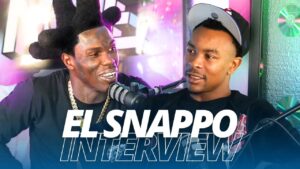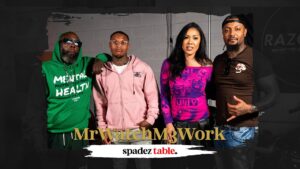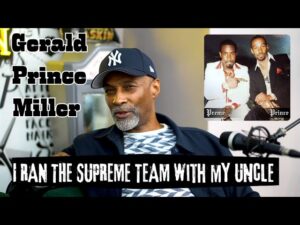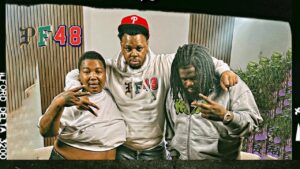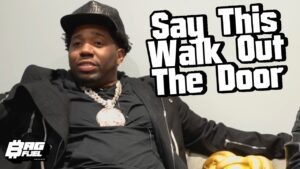In a recent episode of Big Mouf Media, Washington, D.C. rapper Mooka, joined the crew for a wide-ranging discussion on street credibility, internet culture, betrayal, and the future of the District’s hip-hop scene.
Mooka addressed the tension between real-life street code and the fast-paced nature of online narratives. “The internet ain’t about what’s true or false, it’s about what’s entertaining,” he said, explaining that artists must adapt to digital rules without losing authenticity. He criticized public figures who maintain a “street” image while cooperating with law enforcement, arguing that this creates risks for younger people influenced by those actions.
Offering insider perspective, Mooka shed light on the early days of Gizzy Gang, suggesting the crew’s rise came through strategic alliances more than pure unity. He recalled moments surrounding Shy Glizzy’s departure, alleging that internal conflicts cost the group a potential deal with Yo Gotti’s CMG label.
Mooka also weighed in on older figures in the community who encourage young people to reform. While recognizing good intentions, he argued that such advice may not always align with the realities of street life. “You got to evaluate them young lives first before you tell them to push peace,” he said, emphasizing the need for guidance that reflects lived experience.
On the business side, Mooka noted that D.C. lacks industry infrastructure, crediting local bloggers and platforms for doing more to spotlight artists than major labels. “Bloggers bigger than the rappers” in D.C., he said, suggesting artists must build strong narratives and engage audiences to cut through.
Mooka described his latest mixtape, Risk and Rewards, as competitive but not personal. He clarified that his lyrical disses are meant to highlight skill and elevate local rap battles rather than target families or deceased individuals. Confident in his abilities, he declared he is creating “the best music of my life.”
When asked about peace in the community, Mooka was blunt: “100% absolute peace is impossible because war keeps societies and civilization moving.” Instead, he promotes “personal peace,” encouraging young people to protect themselves and focus on opportunities rather than open conflict.
Mooka encouraged younger artists to broaden their image and avoid clichés. “Stop trying to look gangster and look sweet. If you going to be a gangster, be a gangster. You don’t have to look like that,” he said. He suggested that artists use creativity and fun to diversify visuals and reduce the constant association with violence.
Highlighting local talent, Mooka named Xeo, KP, 30 Sama, No Savage, and Gizwalk among those with significant potential. He praised Gizwalk’s maturity and adaptability, and also mentioned A Town and Lil C, noting Lil C as “industry ready” with a sound fit for a national platform.
In one of the most personal moments, Mooka spoke about betrayal by a co-defendant who cooperated with authorities, resulting in him serving 11 years. The experience, he said, underscores the need to remain cautious about trust within street culture.
Expanding his brand, Mooka is developing a gaming project titled Wild City and preparing a clothing line under Stay With. He emphasized quality over speed in rolling out his business projects. “I’m trying to make sure that people at least get the bang for their buck,” he explained.
Closing the interview, Mooka encouraged young artists to diversify income streams and build platforms beyond music. With his clothing brand, gaming venture, and ongoing music releases, he is shaping a broader vision for his career.

